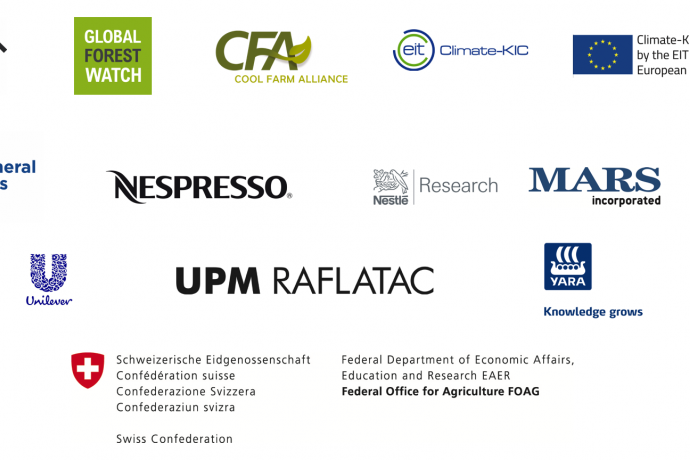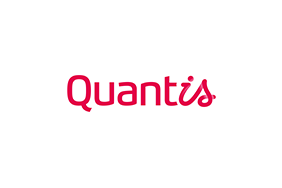
Now Reading
Quantis and EIT Climate-KIC Launch the GeoFootprint Project to Develop a Tool to Measure and Monitor Environmental Impacts of Crops
The GeoFootprint Project will develop a groundbreaking, spatially-sensitive footprint tool to help companies and key stakeholders in crop-based industries support sustainable crop management practices.
Quantis and EIT Climate-KIC Launch the GeoFootprint Project to Develop a Tool to Measure and Monitor Environmental Impacts of Crops
The GeoFootprint Project will develop a groundbreaking, spatially-sensitive footprint tool to help companies and key stakeholders in crop-based industries support sustainable crop management practices.
Published 08-24-18
Submitted by Quantis

Environmental sustainability consulting firm Quantis has been awarded a grant by EIT Climate-KIC, the EU’s largest public-private partnership addressing climate change through innovation, to launch the GeoFootprint Project. The groundbreaking two-year project will deliver comprehensive and site-specific data via a publicly available, web-based platform to a diverse set of actors across crop-based value chains. The goal of the project is to foster more effective measurement, monitoring and management of local sustainable agricultural practices.
By converging Life Cycle Assessment (LCA) datasets and spatial data from Geographic Information Systems (GIS), the GeoFootprint Project will provide companies, public authorities and various actors at the farm level with instant access to the spatially-sensitive (i.e. “Geo”) footprint of major commodities everywhere in the world. With this information (carbon, water, land use change, etc.), actors across crop-based industries will have a more holistic understanding of farm-level impacts and be better positioned to replicate value-added sustainability practices.
Tracking the Effectiveness of Field-level Practices
For many companies in the agro-food, cosmetics and apparel sectors, future growth depends on the continued availability and quality of crop production. The risks posed by climate change, deforestation, land degradation, water scarcity and declining resilience of ecosystem services have prompted increased levels of commitment to and investment in sustainable agriculture, with a particular focus at crop production level. However, companies and other diverse stakeholders across the value chain face considerable methodological issues when it comes to assessing and proving the efficiency of sustainability efforts.
The GeoFootprint Project will drastically improve the value companies derive from the data they collect. Enhanced visibility of on-the-ground impacts will offer brand owners an opportunity to accurately and efficiently manage their supply chains, track the effectiveness of sustainability initiatives, deploy clear actions and foster greater collaboration with key players actors across the value chain, thereby creating a stronger link between field-level changes to decisions at the strategic level.
Another key aim of the project is to democratize access to climate risk information with a focus on land use and agriculture to scale impact. A significant portion of the data as well as the web platform’s overwriting function will be made publically available to encourage all relevant stakeholders, from multinationals to smallholders, to engage in the decarbonization of the agricultural sector.
New Solutions to Support Sustainable Crop Management Practices
Life Cycle Assessment is the leading decision-making support tool for the environmental management of agricultural commodities. Up until now, it has relied on data derived from average meteorological and ecological conditions at the country level to identify drivers of environmental impacts and evaluate measures for reducing them. Practices can be informed by local or national governmental policies, market trends and pressures from other supply chain actors; however most, agricultural practices (resource use, inputs and corresponding emissions) are highly context specific and largely determined by micro-spatial parameters such as soil properties, precipitation and slope.
Integrating data from GIS into LCA calculations allows a product’s spatial context to be taken into consideration when evaluating impacts. “The capability to explicitly consider the spatial context (or spatial data) in LCA calculations offers a radically more efficient and more accurate way to assess farm-level cultivation practices and their corresponding mitigation potential,” states Jürgen Reinhard, PhD, Senior Sustainability Consultant at Quantis Zürich.
“EIT Climate-KIC is really keen on starting this new project on context-based LCA allowing to reduce monitoring and evaluation costs of best practices in land use and hence improving the traceability of the food value chains.” adds Catherine Laurent-Polz, Portfolio Manager at EIT Climate-KIC.
Through the GeoFootprint Project, sustainability experts at Quantis will work together with arx iT, World Resources Institute (WRI), Cool Farm Alliance and a network of leading organizations to further explore these issues and provide solutions that better support sustainable crop management practices. The network, which will be expanded over the course of the project, will provide guidance and feedback throughout the development of the platform. Initial partners include General Mills, Mars, Nespresso, Nestlé, Swiss Federal Office for Agriculture, Unilever, UPM Raflatac and Yara.
Milestones of The GeoFootprint Project
Over the next two years, the project partners, guided by Quantis, will concretely produce:
A computational regionalization engine that seamlessly integrates spatial data into environmental footprinting;
A Land Use Change calculation module that will operationalize the Land Use Change Guidance and link its effects to their corresponding drivers; and
A Land Use calculation module that enables the monitoring and modeling of the effects of different land use management practices on Soil Organic Carbon
The development phase currently underway will be followed by a pilot period, during which project partners will deploy the platform. Feedback from the pilots, as well as the project Advisory Board (comprised of LCA, IT, Geographic Information Systems (GIS) and sustainable supply chain specialists), will be used to further refine the platform and define a business model adapted to future users.
To learn more about the GeoFootprint Project, how it will shape the future of impact accounting and agriculture, or how to participate, contact Quantis Senior Sustainability Consultant, Carole Dubois.
* END *
About Quantis
Quantis guides top organizations to define, shape and implement intelligent environmental sustainability solutions. In a nutshell, our creative geeks take the latest science and make it actionable. Our team of talents delivers resilient strategies, robust metrics, useful tools, and credible communications for a more sustainable future.
A sustainability consulting group known for our metrics-based approach to sustainability, Quantis has offices in the US, France, Switzerland, Germany, Italy and Colombia and has a diverse client portfolio that spans the globe, including AccorHotels, BASF, Danone, the European Commission, GE, General Mills, Intel, Kering, the Kraft Heinz Company, L’Oréal, MondelÄ“z International, Nestlé, Unilever, Veolia and more.
We are Quantis: sustainability’s scientists, experts, strategists, innovators and visionaries.
(re)discover Quantis at www.quantis-intl.com
About EIT Climate-KIC
Climate-KIC is the EU’s largest public private partnership addressing climate change through innovation to build a zero carbon economy. We address climate change across four priority themes: urban areas, land use, production systems, climate metrics and finance. Education is at the heart of these themes to inspire and empower the next generation of climate leaders. We run programmes for students, start-ups and innovators across Europe via centres in major cities, convening a community of the best people and organisations. Our approach starts with improving the way people live in cities. Our focus on industry creates the products required for a better living environment, and we look to optimise land use to produce the food people need.
Climate-KIC is supported by the European Institute of Innovation and Technology (EIT), a body of the European Union.

Quantis
Quantis
Quantis guides top organizations to define, shape and implement intelligent environmental sustainability solutions. In a nutshell, our creative geeks take the latest science and make it actionable. Our team of talents delivers resilient strategies, robust metrics, useful tools, and credible communications for a more sustainable future. A sustainability consulting group known for our metrics-based approach to sustainability, Quantis has offices in the US, France, Switzerland, Germany, Italy and Colombia and has a diverse client portfolio that spans the globe, including AccorHotels, BASF, Danone, the European Commission, GE, General Mills, Intel, Kering, the Kraft Heinz Company, L’Oré©al, MondelÄ“z International, Nestlé©, Unilever, Veolia and more. We are Quantis: sustainability’s scientists, experts, strategists, innovators and visionaries.
More from Quantis
